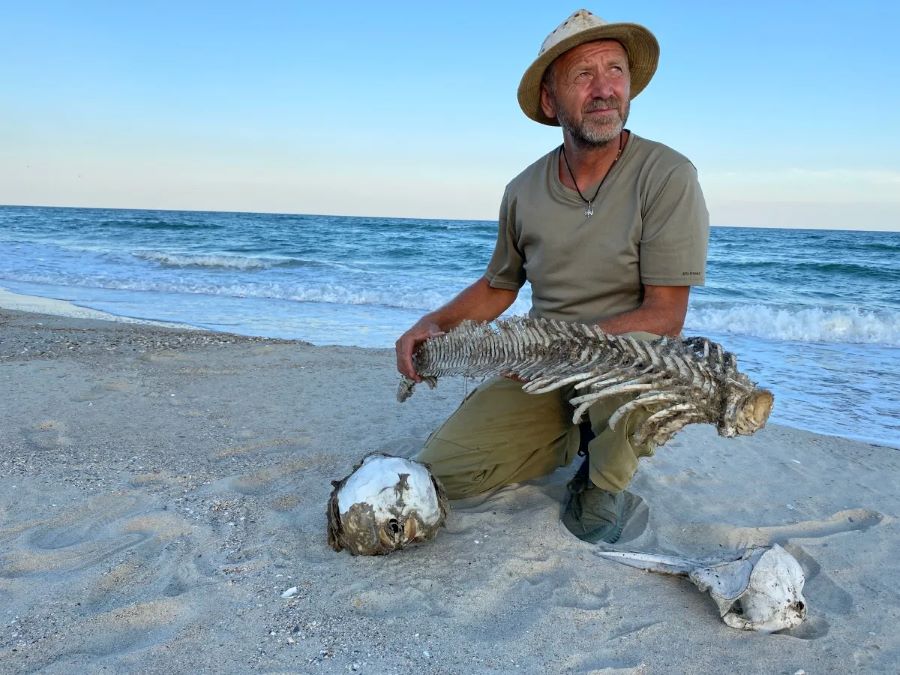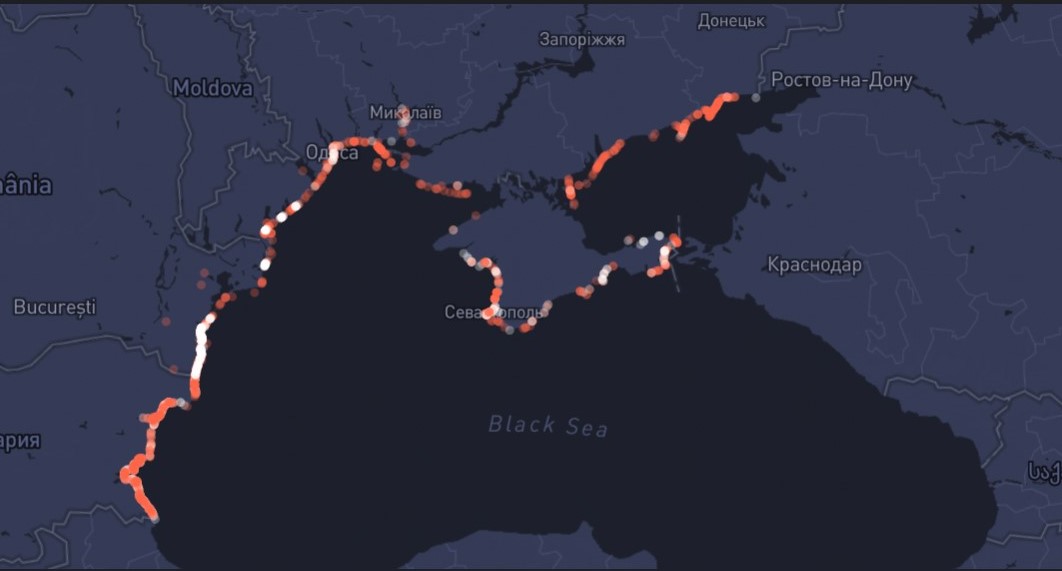One fifth of Black Sea dolphins died as a result of war in Ukraine
At least 50,000 dolphins have been killed or died as a result of military operations in the Black Sea since Russia invaded Ukraine in February 2022. While Russian propaganda was quick to blame an “infection” as the number of cetacean deaths surged dramatically after the hostilities started – without bothering to provide a bit of evidence – a transborder investigative team led by Ukrainian outlet NGL Media found that the mammals were actually casualties of the ongoing war.
Before the war, the number of dolphins inhabiting the Black Sea had been estimated at around 250,000, which means that one fifth of the cetacean population perished as a result of the Russian aggression.
More to read:
Scientists discover Danube nations continue exterminating endangered sturgeon fish
NGL.media talked to scientists from various Black Sea countries and discovered patterns that confirm the direct involvement of Russians in the mass death of dolphins.
Documenting deaths
One of the scientists who first documented the ecocide is maritime environmentalist Ivan Rusev, doctor of biological sciences and head of the scientific department of the Tuzly Lagoons Natural Park in Ukraine’s Odesa Region.
“The corpses that wash up on the shore do not show the real mortality of animals. Some of them stay at the bottom, their lungs fill with water and they [get] drown. Another part washes ashore, but is soon taken away by the waves. My colleagues from different countries, including the United States, conducted studies, [that] show that only 6-8% of the corpses are washed ashore.
We counted the dolphins found on the coast in 2022 and came up with a figure of 50,000,” explains Ivan Rusev explains.

Ukrainian researcher Ivan Rusev with a dolphin carcass. Credit: NGL.media
These losses are confirmed by a joint group of Ukrainian and Polish scientists. In an article for the science journal Biology Letters, they said that between 37,500 and 48,000 cetaceans during the first three months of the war.
The authors admit that the results of their work are an example of the social science and may not be as precise as traditional scientific approaches, but they do reflect the trends.
So why did the dolphins die from?
Among the core questions the investigation worked to answer is what are the exact causes of cetaceans’ death?
The most likely scenarios regarding the high death toll among the Black Sea dolphins, according to the researchers involved in this investigation, can be narrowed to four hypotheses:
- Acoustic exposure and blast injury – for example, the effects of radar, mine blast injury, and injuries caused by missile launches (as the Russians launch cruise missiles from submarines). These consequences can last for years – like a heavy concussion in people.
- Intoxication – poisoning by substances, including ammunition, fuel, or rocket fuel components.
- Stress – the effects of exposure to atypical underwater noise. Russian ships and explosions they cause scare away fish (dolphins’ food source) and cause their migration. Then cetaceans have to migrate after them and lose their usual habitats.
- Infection – caused by a single pathogen or combined, when several pathogens act simultaneously. They can get into the water, in particular, as a result of hostilities, for example, due to leakage from damaged sewerage utilities.
The story omits to specify the species of the dolphins affected by the war. Three Cetacean species live in the Black Sea. These are Black Sea harbour porpoise (Phocoena phocoena relicta), bottlenose dolphin (Tursiops truncatus) and short-beaked common dolphin (Delphinus delphis).

A map showing (light spots) the shore line where dead dolphins were found over tha past two years. Credit: NGL.media
Ukrainian prosecutors in Odesa have filed an official criminal investigation to determine whether Russia can be charged with ecocide and assess the size of reparations.
The dolphins are just a small part of the environmental damage inflicted by the aggressor in Ukraine, where the Russians destroyed forests, mined farm fields, and flooded thousands of square kilometers of land (Kakhovka dam blast).
The investigation also says there’s mounting evidence that the deaths of so many dolphins will affect the ecosystems of other Black Sea countries too - Romania, Bulgaria, Georgia, and Turkey.
The work was funded with a 11.200-euro grant from the JournalismFund.
***
Care to buy us a coffee? Do it via PalPal: office[at]rudeana.com. Thank you.







